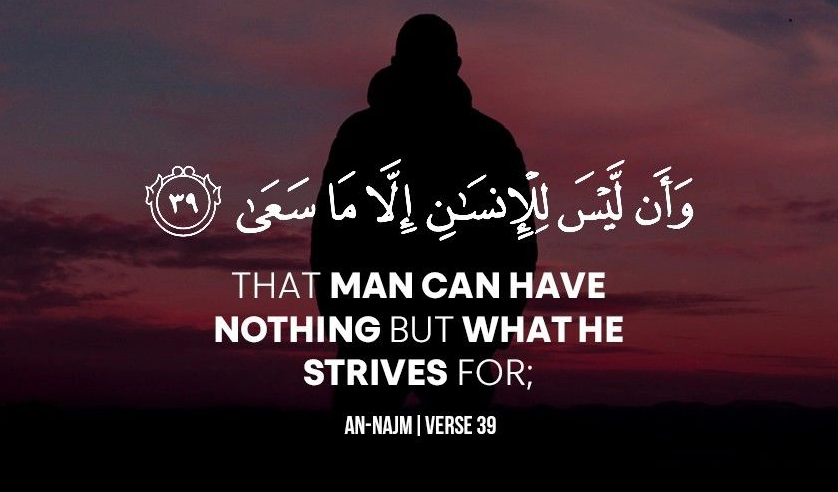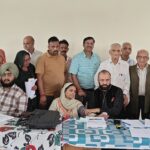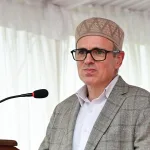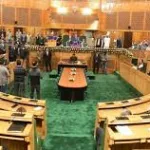Being “car-less” has its own blessings! No doubt one has to “stand and wait” (to use Milton’s expression) while going to and returning from one’s workplace, but the experience a person gains is indeed invaluable. As the shockers of the vehicle absorb the shocks of our dilapidated roads, so does a person without a personal vehicle absorb the “bitterness” of the “unexpected” behaviour of the fellow passengers as well as the driver. Amid such circumstances on routine basis, one is inspired by the Qur’anic commandments which ask for giving good treatment to those who become one’s “companions by one’s side” even for moments. (Qur’an, 4:36) However, traveling by the passenger transport teaches a person such lessons from the fellow passengers that bear a mark of the wisdom of decades. And, when you are given lift by a sober driver who shares his life’s experiences with you, it is quite rewarding.
The other day, I, as a “car-less” public servant, as usual, was waiting for a service vehicle outside GDC Sogam, Lolab, which is my workplace. I was not able to board three vehicles as they were filled to capacity. However, my waiting ended when an automobile (mini truck) stopped in front of me and the driver, with a humble gesture of his head and right hand hinted me to board. No sooner did I board the vehicle that the driver starting sharing his day’s experience. Shabir Ahmad (name changed), the driver, with some speech impediment, had actually took a long drive to Sogam from Rajwar, Hadwara with his newly purchased mini truck loaded with hosiery items. Interestingly, after spending some five hours by the side of Jama Masjid Sogam, Shabir Ahmad had been able to make a sale of 6,000 rupees. However, what I observed was that he was “singing” the praises of God for being able to do such a business during the day!
Moving forward, Shabir Ahmad opened up a bit more. Actually, he has started supporting his family just after his matriculation when he understood that he couldn’t continue his studies. So he began his career by making and selling potato fries (Kashmiri, alau munji) in main market Handwara. For a couple of years, he would make a fortune of 200 rupees daily. Although he was content with the meager outcome of his business, but his restlessness to do something more made him to survey other nearby markets. However, he didn’t find an exit to leave Handwara for some more years.
As luck would have it, one day he was invited by one of his neighbours, settled in Srinagar, to visit his home. Shabir’s first visit to Srinagar gave him a chance to “survey Batamaloo market” for his work. His sharp business insight conveyed him that Batamaloo was the best avenue for his work. Strangely enough, instead of going to his neighbour’s home, he returned back to shift his business unit to Batamaloo. He, however, promised his neighbour that he would spend a week at his home instead of one night.
Next day was Shabir’s first business day at Batamaloo and his neighbour had to come to meet him at Batamaloo to take him to his residence. Luckily, on closing the first day’s work at Batamaloo, Shabir had made a fortune of 900 rupees, 700 rupees more than what he would earn in Handwara. First days experience encouraged Shabir to spend next eight years in Batamaloo. Had not family responsibilities dragged him back, Shabir would have been still in Batamaloo.
After returning home, Shabir was mature enough to get married. He, however, preferred to build his own house before getting married. Shabir had enough savings to construct a two-storey house quite as per the standards and requirements of the time. After having constructed the house, Shabir got married as a self-reliant and self-confidant young man without being dependent on anybody, supporting his whole joint family. Very soon Shabir changed the line of his work and started selling hosiery items. He, however, didn’t set up his business in a shop. Instead, he bought a vehicle (mini truck, mentioned above) in which he visits different markets and localities on different days of the week. This mode of business gives Shabir handsome returns.
What is interesting about Shabir is that he has neither borrowed anything from anybody nor has he taken loan from any bank to expand his business. Moreover, it is quite rewarding that he has set up a business unit for his physically challenged younger brother in main market Kupwara. This brother of Shabir is doing a promising business there. Shabir has also taken on rent a spacious store in main market Kupwara where he is storing the goods which he is dealing in. And, Shabir’s eldest daughter is studying in a prestigious school of North Kashmir.
In spite of his tight business schedule, Shabir is not ignorant about religion. While narrating his “success story” Shabir was continuously referring to the “trust in God” (tawakkul ‘ala Allah), “patience” (sabr) and “truthfulness” (sidq). By defeating all barriers and impediments people like Shabir have proved that financial and health challenges don’t always end in begging. These challenges actually open new windows for active and hardworking lifestyles resulting in self-reliance and self-confidence.
Here, I was reminded of one of the answers of an Islamic scholar which he gave about business activity being “striving for God’s bounty” (ibtaghu min fadl-i Allah) and the outcome (cash/kind) thereof being “good” (khayr). Thus a business based on truth and honesty is worship in the real sense of the word and such a businessman is the real servant both of God as well as of the humanity.
Without making any comparisons, I was also reminded of the attitude of the famous Companions of the Prophet (SA‘AS), namely ‘Abd al-Rahman ibn ‘Awf (R‘A). After the Brotherhood (Mu’akhat) was established between the Immigrants (Muhajirun) and the Helpers (Ansar), he took permission from the Prophet (SA‘AS) to visit the Madinan Super Market. After surveying the market, ‘Abd al-Rahman ibn ‘Awf (R‘A) started doing business there. And, just in a couple of years, by employing the model of business based on justice and equity, he was able to do away with the exploitative models as well as the exploiters. Then he used to say that “I thought if I touch soil, it would become gold,” meaning thereby that hard-work coupled with honesty and truthfulness results in the good of the individual as well as of the society.
(The author is Assistant Professor, Islamic Studies at GDC Sogam, Lolab. Email: [email protected])








